Marketing has always required immense creativity and innovation. In the digital age, this is even more so, as marketing professionals must compete with many other sources of distraction to grab the customer’s attention. Therefore, they constantly seek new ways to optimize their strategies, boost productivity, and achieve remarkable results.
In this scenario, Artificial Intelligence (AI) has emerged as a transformative force. Marketing is one of the areas in which AI has the potential to drive immense change, so much so that a study found that along with sales, marketing is the single business function in which AI will have the most significant financial effect.
With its ability to streamline processes, enhance decision-making, and generate more value from marketing efforts, AI can truly revolutionize how marketing strategy can deliver results.
This article will show how AI can effectively leverage your marketing strategy to skyrocket productivity.
The AI Revolution in Marketing
AI plays a fundamental role in today’s marketing landscape. The integration of AI in marketing began with basic task automation and data analysis. The emergence of machine learning techniques has accelerated the adoption and sophistication of how AI can be used in marketing.
Depending on the level of intelligence and whether it is a stand-alone solution or part of a broader framework, marketing AI can be categorized according to two dimensions- less advanced and more advanced, further breaking down into four main types of marketing AI.

As we can see, the range of applications is quite huge. Understanding these quadrants can help marketers choose the applications that serve users’ needs best and design the most effective marketing strategy.
Here are the top 10 ways to leverage AI to achieve 3X productivity.
#1. Predictive Analytics
Predictive analytics is one of AI’s most noteworthy contributions to digital marketing. AI processes huge amounts of historical data by collecting, cleaning, and analyzing it using machine learning algorithms. Thus, it can predict trends, customer behavior, and fluctuations in market conditions. This element of prescience enables marketers to make informed decisions about their campaigns, content strategies, and product launches.
For example, imagine a retail business that sells everything from electronics to groceries. For such a business, managing inventory is a challenge. By cleaning and analyzing the data about sales, consumer behavior, and seasonal economic trends stored in a database, AI can process it.
It can offer insights such as:
“Based on historical data and demand forecasts, we expect a surge in demand for smartphones during the summer holiday season.”
“Our current inventory for stationery products is too high compared to demand. Consider reducing stock and reallocating resources to higher-demand categories.”
“Supplier A consistently delivers orders on time and offers competitive prices. Explore opportunities to expand our partnership with them.”
Thus, based on the analysis, it could suggest inventory optimization, identify the most reliable suppliers, or even suggest a pricing strategy.
Walmart, for example, uses AI to improve daily supply chain workflows, anticipate and work in line with seasonal demand cycles, and even optimize and personalize grocery deliveries.

#2. Customer Segmentation
Customer segmentation can help you target your marketing efforts more precisely, leading to better results. AI can segment your audience with unparalleled accuracy. By analyzing user behavior, demographics, and preferences, AI helps create highly targeted marketing campaigns. This boosts customer engagement and conversion rates, as messages are tailored to individual interests.
Imagine an online fashion retailer that uses AI for customer segmentation to improve its marketing and product recommendations. By analyzing customer data, including purchase history, browsing behavior, and demographics, AI algorithms create distinct customer segments, such as “Frequent Shoppers,” “Fashion Enthusiasts,” and “Casual Shoppers.” The retailer can then personalize the marketing efforts directed at each category. So, a frequent shopper may receive early access to sales events or exclusive discounts, whereas a casual shopper may receive email campaigns highlighting discounts on selected products.
Coca-Cola uses AI for customer segmentation in its marketing campaigns. This allows Coca-Cola to personalize its advertisements, promotional offers, and product recommendations to match its customers’ specific interests and needs based on these segmentations. So, for example, it has different packaging and sizes to appeal to people of varying income levels. Similarly, while it may target a younger audience using advertisements that feature popular celebrities, older patients, who are more likely to be diabetic, may receive promotions for Diet Coke or other healthier product options.
Accurate customer segmentation made the difference for Scripbox, India’s leading digital wealth manager. Initially, Scripbox used segmentation based on demographics such as age. However, they didn’t see the desired results. It was segmentation based on the users’ residence status (domestic vs. NRI) that made a difference. Assisted by WebEngage dashboard features like Send Intelligently,’ ‘A/B testing,’ and personalization opportunities, they were able to leverage communication channels with greater effectiveness. Ultimately, this led to a 3X growth in user engagement, an increase in email open rates, and a reduction in unsubscribe rates.
Explore in-depth how WebEngage can help you achieve precise customer segmentation to deliver the best customer experience.

#3. Chatbots and Virtual Assistants
Chatbots and virtual assistants are the most obvious ways in which customers directly experience the use of AI. They provide 24/7 customer support by answering common queries, assisting with product recommendations, and guiding users through the sales funnel.
Imagine a customer who visits the website of a bank or insurance company, looking for a specific financial product. Presented with a wide range of choices on the website, the customer may want immediate guidance on which product best fits their financial goals. At this point, a chatbot can assist the customer to choose by responding to questions. It can also utilize the interaction with the customer to upsell another product.
Airbnb, for example, employs a chatbot on its website to help users with various tasks such as finding and booking accommodations, customer support during the booking process, and getting refunds. This has allowed Airbnb to enhance the host and guest experience.

#4. Content Generation
Generative AI-powered content generation tools can help create blog articles based on trending keywords, social media posts with relevant hashtags and captions, and even video scripts for product demonstrations or promotional videos. While these tools are not capable of completely replacing human creativity, they can help marketers save time and maintain a consistent content schedule.
Generative AI can be used in unique ways to engage customers and get them to participate in innovative marketing campaigns. A brilliant example of a company that does this well is Coca-Cola. Most recently, it has generated a buzz around its latest “mystery” flavor, Coca-Cola Y3000, which it says was co-created with AI. Similarly, the ‘Create Real Magic‘ campaign helped Coca-Cola encourage talented creators and artists to work with Generative AI to develop unique and attractive images featuring Coca-Cola assets. These images were featured on billboards in prime locations like New York’s Times Square.

#5. Content Optimization
In a world of search engines that rank content based on multiple factors, it is necessary to create quality content and optimize it so potential customers can easily find it. AI-driven SEO tools assist marketers in identifying keywords, tracking rankings, and analyzing competitors. They can also provide recommendations for optimizing on-page content and structure, which enhances organic search visibility. Thus, AI allows businesses to keep up with evolving search engine algorithms and user behaviors, ultimately refining their online visibility and search engine rankings.
Zillow, a leading online real estate marketplace, implemented AI-driven content optimization strategies to improve its search engine rankings and user engagement. Aside from recommendations about keywords, user behavior analysis, and dynamic content generation, AI also helped Zillow improve its local SEO efforts by analyzing location-based search queries. As a result, Zillow saw a noticeable increase in website traffic and improved engagement metrics as their listing began to rank higher.
#6. Email Marketing Optimization
Email marketing is a must-have in any marketer’s toolbox. AI can improve email marketing by analyzing subscriber behavior and delivering personalized content and recommendations, leading to higher open rates, click-through rates, and conversions. AI can also optimize and automate send times and subject lines to maximize engagement.
Expedia, a leading online travel agency, aimed to boost its marketing performance by crafting more persuasive and engaging email subject lines. Using AI, they discovered emotional and linguistic patterns that resonate with specific customer segments. This led to an uptick in click-through rates and revenue generated from email marketing.

Juicy Chemistry, a D2C brand offering natural and organic skin products, achieved 4.5X growth in email conversions and 2X improvement in email open rates. They could do this by using fewer yet more sharply targeted communications, along with optimization of channels, segments, and spending, using detailed analytics from WebEngage.
Unlock the potential of your email marketing strategy with WebEngage’s expert assistance. Dive deeper into your possibilities.
#7. Programmatic Advertising
Programmatic advertising platforms leverage AI to automate ad buying and placement in real time. AI can optimize your bidding strategy, generate and deliver personalized ads, and help you understand your audience better. This ensures your ads reach the right audience. This makes ad campaigns more effective and efficient.
Amazon, for example, uses AI algorithms that analyze customer data and behavior, including past purchases, to optimize ad placements on its e-commerce platform.

#8. A/B Testing and Optimization
A/B testing identifies winning variations and suggests product, service, UI, and UX improvements. AI accelerates and enhances A/B testing by automating processes, conducting complex statistical analyses, and enabling personalization and dynamic content testing. This allows marketers to optimize landing pages, ad copy, and other elements of their digital marketing strategies for better results.
Imagine that a travel booking website wants to test the impact of using different images in email marketing campaigns. In AI-driven A/B testing, users are served automatically selected images based on their preferences and past interactions with the website. This allows for greater personalization, as users receive emails with images they will most likely connect with. Airbnb, for example, has successfully used AI for A/B testing.

Closer to home, for Bajaj Finserv EMI Store, using WebEngage’s Send Winner of A/B Testing Automatically feature allowed them to test different variations of their campaigns and then send the best one to their audience. Thus, implementing A/B test insights in real-time was a crucial factor that helped them to run more effective campaigns. This, in turn, led to an increase in user engagement, 3.5 X increases in conversions, and a 17% increase in conversions from retargeting efforts.

#9. Social Media Management
Most successful brands use social media today. AI tools can study social media conversations and trends to help you design your content strategy. AI can also automate posting schedules and monitor brand mentions, allowing for more effective social media management and engagement. AI-driven sentiment analysis tools can monitor social media mentions and comments to gauge audience sentiment. This can help you understand how your customer perceives your brands and products. This, in turn, will enable you to adjust strategies accordingly.
AI can also help with influencer marketing. Using natural language processing tools, for example, AI can predict how well an influencer’s style and voice will align with the brand’s goals. Accordingly, brands can select the social media influencers whose content resonates the most with the brand.
Coca-Cola relies heavily on AI for its marketing efforts, including social media marketing. In Japan, the company’s AI-powered app, Coke On, allows users to access a loyalty scheme by buying a drink from a vending machine. Innovative efforts like these enhance customer engagement and brand loyalty.

#10. Customer Relationship Management (CRM)
AI-powered CRMs enable businesses to manage customer data effectively. They can track interactions, analyze customer sentiment, and even predict when a customer might be ready to purchase. Additionally, AI can reduce customer “churn” by identifying leak patterns in conversion funnels. Overall, AI-driven CRM can help build stronger, more personalized customer relationships.
Coca-Cola is a prime example. They implemented an AI-powered CRM system that enabled them to track customer behavior and preferences. They later leveraged this data to design targeted marketing campaigns. The system also helped them identify improvement areas for their customer service function.
The Future of AI in Marketing
As per research, the AI market is poised to grow twentyfold by 2030. Around 97 million people are expected to work in AI by 2025.
This shows that AI is here to stay. Emerging AI trends like AI-driven voice search optimization and augmented reality marketing will continue to shape the digital landscape and radically transform how brands engage with buyers.
As AI technology advances, businesses that embrace these trends can stay ahead of the curve in optimizing their marketing strategy.
Conclusion
AI is not just a buzzword but a powerful tool. Businesses that embrace AI-driven marketing strategies will find themselves better prepared to respond to changes in the digital marketing arena. AI can help you increase productivity, make data-driven decisions, and offer personalized experiences to your tech-savvy consumers.
WebEngage is well-positioned to help you with your AI technology needs. Request A Demo to explore what WebEngage can do to help you harness the transformative power of AI.



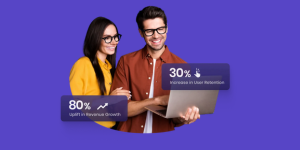



 Ananya Nigam
Ananya Nigam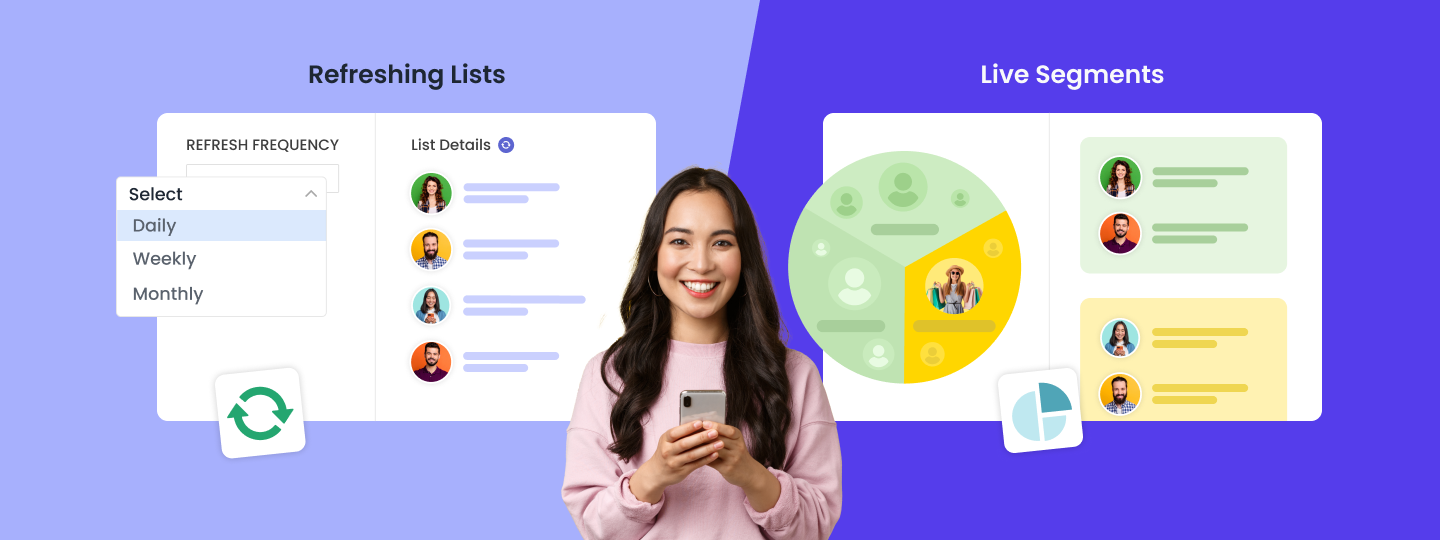
 Harshita Lal
Harshita Lal
 Diksha Dwivedi
Diksha Dwivedi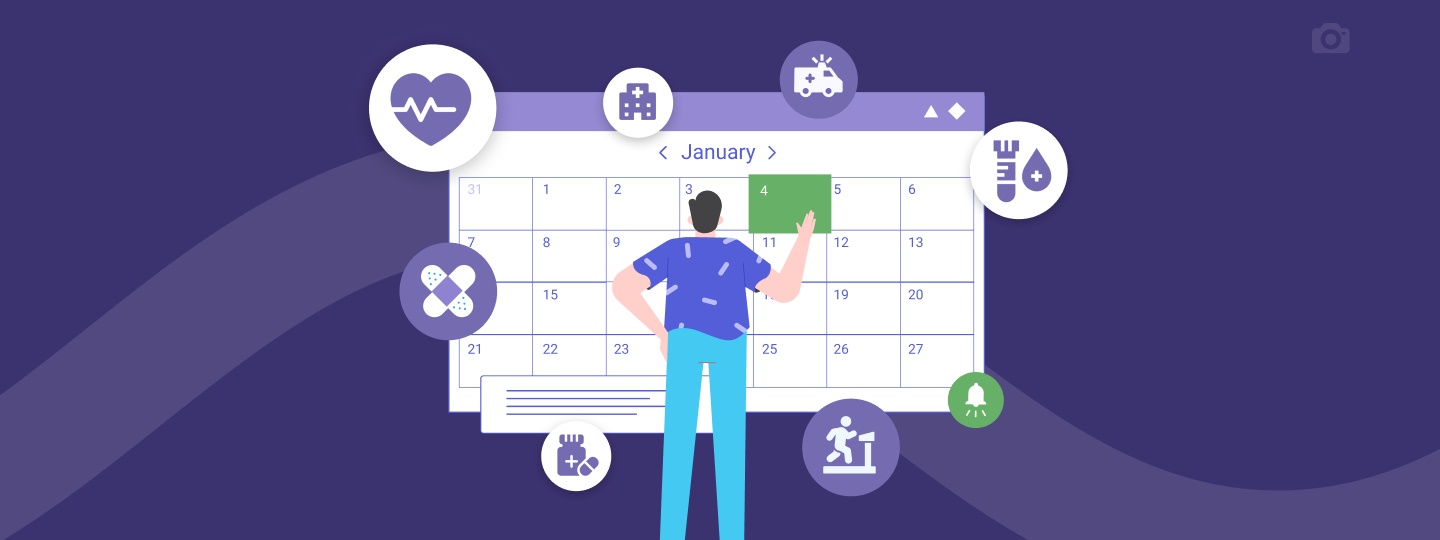
 Dev Iyer
Dev Iyer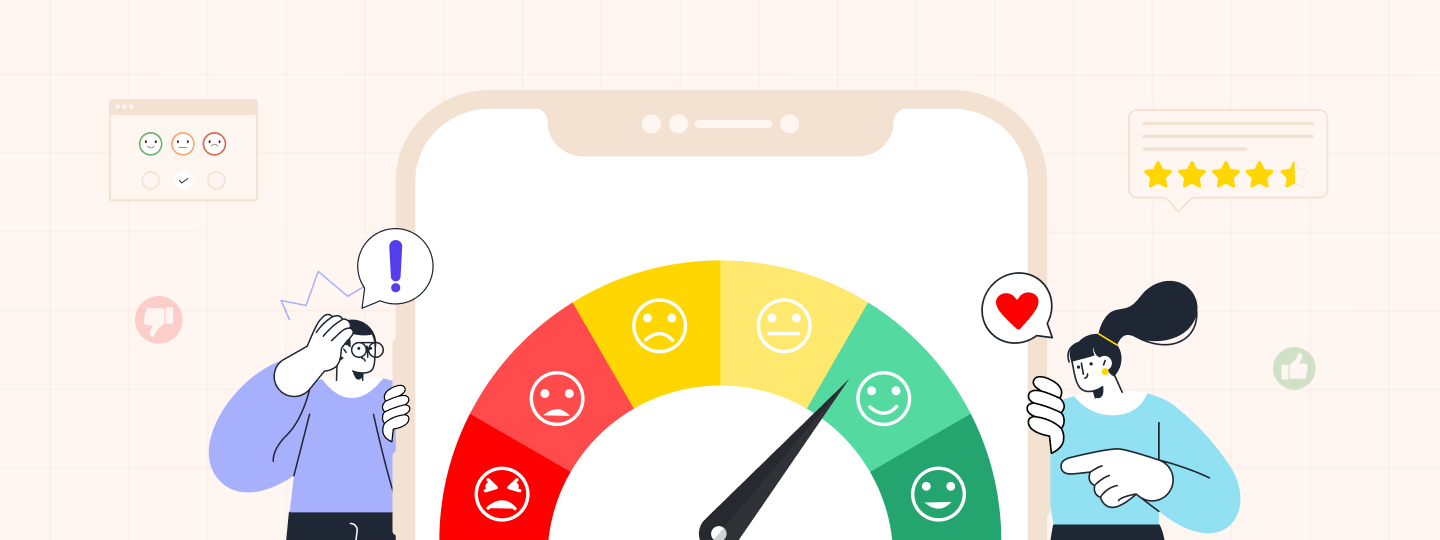
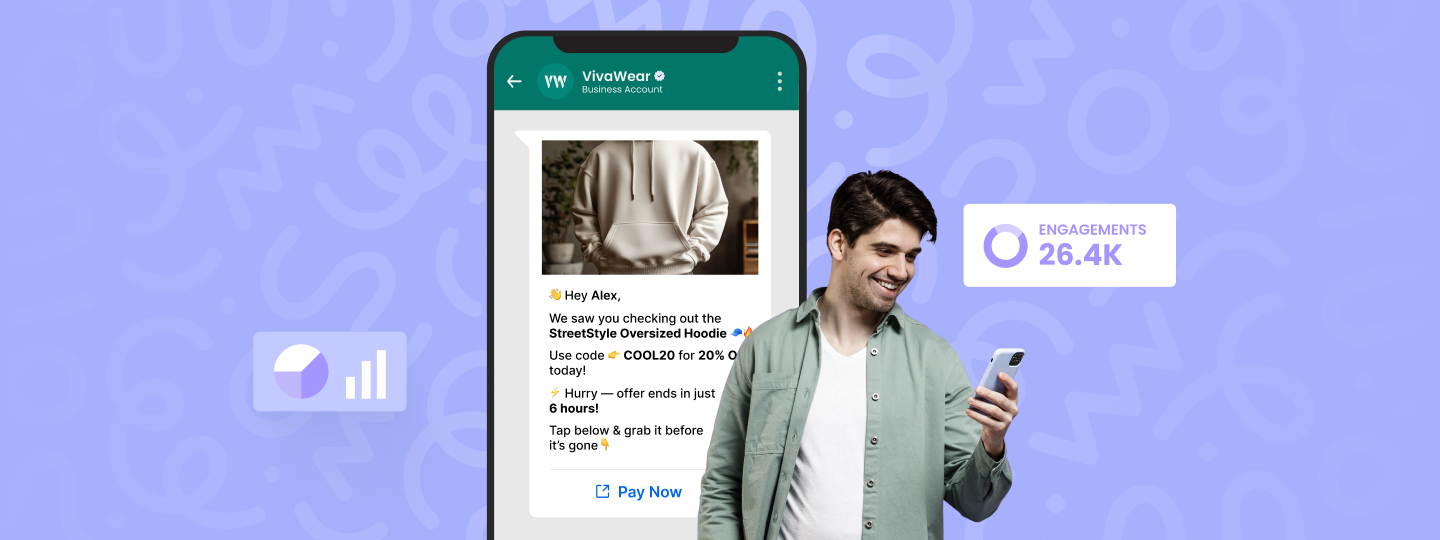
 Prakhya Nair
Prakhya Nair